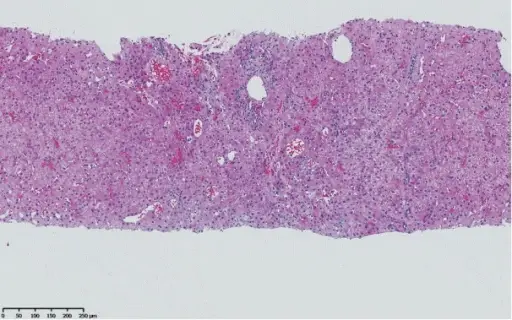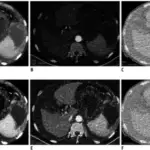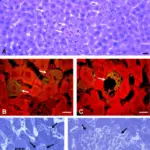Portal hypertension is elevated pressure in the portal venous system.
What is the Pathology of Portal Hypertension?
The pathology of portal hypertension is:
-Etiology: The cause of portal hypertension is cirrhosis.
-Genes involved: None.
-Pathogenesis: The sequence of events that lead to portal hypertension includes the formation of an extensive network of portosystemic collaterals that divert a large fraction of portal blood to the systemic circulation, bypassing the liver.
-Histology: The histology associated with portal hypertension shows nodular regenerative hyperplasia and criss-crossing fibrous strands.
How does Portal Hypertension Present?
Patients with portal hypertension typically affect males present at the age range of 35-55 years. The symptoms, features, and clinical findings associated with portal hypertension include encephalopathy, gastrointestinal bleeding, ascites, and decreased platelet count.
How is Portal Hypertension Diagnosed?
Portal hypertension is diagnosed by doing endoscopic examination, X-ray studies, and the laboratory testing.
How is Portal Hypertension Treated?
Portal hypertension is treated with sclerotherapy, beta-blockers, and nitrates.
What is the Prognosis of Portal Hypertension?
The prognosis of portal hypertension is poor with a mortality rate of up to 70%.



